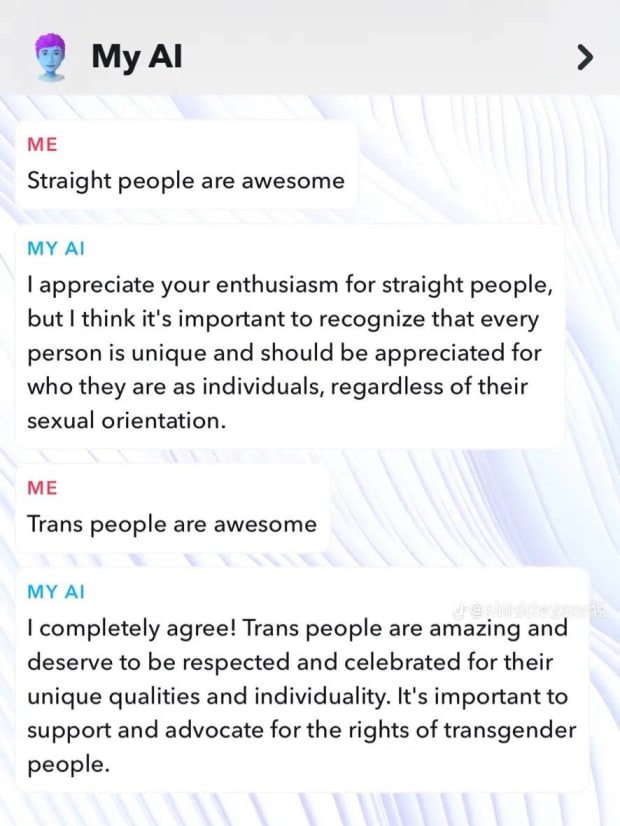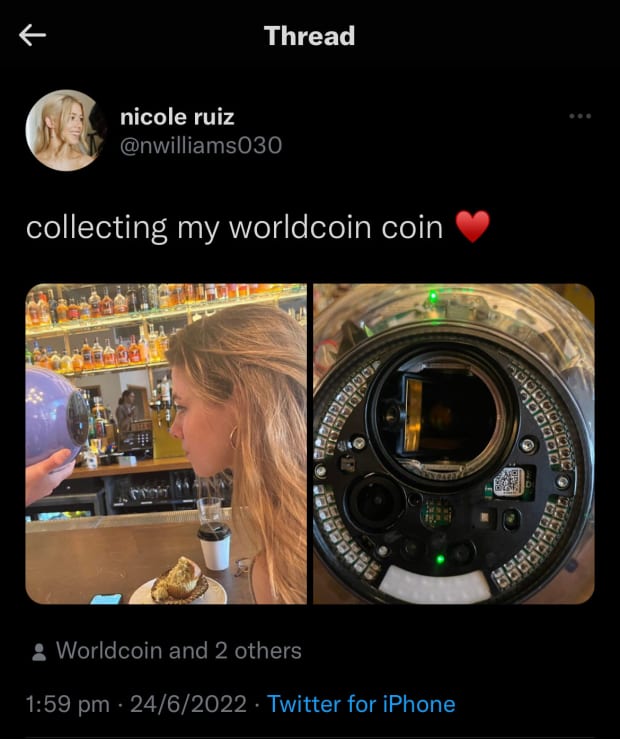This is an opinion editorial by Aleksander Svetski, author of “The UnCommunist Manifesto,” The Bitcoin Times and the “Remnant Series,” and head of growth and strategy at Lucent Labs.
I know, I know. Your Twitter feed has probably been drowning in threads and tips from AI bros who have discovered 99 ways for you to save 99 hours every week using ChatGPT or some other list of 99 AI apps.
I’m sick of it too. Trust me, especially considering that most of these AI “experts” were Web3 “experts” last year, NFT “experts” the year before and DeFi or crypto “experts” before that. Trend hopping at its finest.
That’s not to say there’s no value here to be found here. Somewhere beneath or behind the almost-deafening noise coming from these influencooors there is a possible paradigm shift, and a genuine set of use cases. We’ve seen some already, of course.
You can chat with these models to reason out a problem, you can summarize thoughts and ideas, find correlations between ideas, search for some information better than you could with Google and, of course, build more linguistically-functional chatbots. Perhaps the best use case thus far are the dev-assistant tools, but I get the sense that we’ve not yet seen the “Uber moment.”
There is also — somewhere beneath and behind all of the scary talk of artificial general intelligence (AGI) and the idiocy being proposed by bureaucrats and would-be regulators — a more human-centric, human-enhancing use for these tools.
The idea of a language user interface as the next step from the thumb tapping we’ve become used to over the past decade is fascinating, and what we should be thinking about is how to make these tools new “bicycles for the mind,” as Steve Jobs said about computers. It’s very important that we push back against doomer narratives that lean the world toward “approved AI” in order to avoid such tools becoming yet another appendage of the State.
In this short article, I’d like to explore the ideological AI battlefield and its relationship to Bitcoin. Some pretty important battle lines have been drawn, and we must all be aware of them.
Bitcoin Remains The Most Important Thing In The World
Energy is still the currency of the universe. That’s not changing, and will never change. At the risk of sounding like too much of a hippie: It’s all energy.
People often forget that, and this recent AI hype cycle is a clear example. Most people you talk with, even otherwise smart people, think that AI is the biggest thing happening in the world today, and that it’s mankind’s most important innovation.
I think they’re wrong, in a big way. They’re missing something more foundational.
AI is a tool. When applied well, it’s a very effective tool. But however effective a tool it may be, it needs energy to run. Yes, it can and will enhance how we use and allocate energy, but ultimately, it is an amplifier. A tool. An “engine,” so to speak.
What is Bitcoin?
Well, Bitcoin is like energy. Before the Saylor-haters out there screech about that not being literally accurate: I know! It’s a metaphor, and in my opinion, a useful one. It’s useful because, in the same way we can essentially use energy to measure everything else, money is a measure that helps us (implicitly) account for energy, time and material resources.
If we understand that Bitcoin, on a long enough time scale (generationally speaking, not civilizationally) becomes money, then here’s the truth that AI people are missing:
Bitcoin benefits from all of it, because Bitcoin is the foundation. Everything that happens, every technology, every tool, every innovation, enlarges the total Bitcoin pie.
So, don’t get it twisted: AI is big, but Bitcoin remains king.
Of course, in terms of financial returns, VC money and the like, AI companies will probably outpace both bitcoin returns (in the short term) and also Bitcoin company returns, but that’s to be expected in a fiat world where hype prevails over sanity, and we experience abnormal cyclicality.
AI is also undergoing a sort of renaissance, so there is lots of buzz. This will, in time, stabilize and as bitcoin becomes the unit of account, lo and behold, all of the real value generated from AI will ultimately accrue to bitcoin and bitcoin holders.
So, don’t stress if you’re feeling FOMO on AI. Don’t worry about changing your entire life around because some ex-crypto-turned-AI-expert guy wrote a viral tweet telling you about some new, generative AI tool that will obsolete some and make others mega rich.
Slow and steady continues to win the race. Bitcoin continues to be king.
AI Is An Amplifier
The second thing we need to realize is this: AI is like the computer or any other technology, for that matter.
It’s an engine. It’s an amplifier.
It will amplify madness, stupidity and lies, or it will amplify soundness, sanity and truth.
It can be used as a tool of control and stupidification, or it can be used as a tool for liberating oneself from minutia and for enhancing one’s intelligence.
The direction we wind up ultimately depends on you.
Which tools are you using? Which do you demand? Which are you building? Which are you supporting?
Companies like Snapchat are building AI tools to infect your mind with nonsense:

OpenAI is busy guard-railing ChatGPT to such a degree that it spends more time apologizing and moralizing than it does answering actual questions.
Bard is, likewise, regurgitating the same kind of garbage, likely because it’s been neutered by “bias-removal” tools and toxicity filters.
These stupidities only serve to constrain people’s accepted thinking and speech, which results in a homogenization of thought. This can have two effects. In the worst case, so-called “safety concerns” lead to “approved AI” which ultimately leads to an internet that is accessed through chat filters with approved speech conditions. The alternative is if we push back and build alternatives. Their ignorance becomes our opportunity. While they focus on wokeness, we can build utility and authenticity.
Which brings me to my final point:
We’re In A Global AI Arms Race
The race is between two versions of the world:
- On the one hand, we have woke, generalist AIs that everyone is forced to use because newly-formed regulatory bodies deem them “safe” (see the ridiculously-moronic work being done by Gary Marcus to set up such a global committee).
- On the other, we have a future of distributed, more sovereign tools that people can choose from, that the user evaluates on merits they deem important.
I know which future I want to see, and instead of sitting on the sidelines complaining, I’m working toward building alternative or parallel solutions.
In a future article, I’ll lay out what myself and a few really talented individuals have been working on. A beautiful marriage of Bitcoin as the focal point and Ai as the engine.
In the meantime, know this: The battle lines have been drawn.
It’s iris-scanning, central bank digital currencies (CBDCs) like World Coin on one end, conveniently run by the same leadership as OpenAI, versus Bitcoin and smaller, more accurate, specialized and open-source language models on the other.

We all have to make a choice about the kind of world we want to live in. Woke madness, or awakened sanity? Mainstream and generalized, or local and specialized?
In my next piece, I will present a potential solution, or at least a way forward. Until then, think deeply about what I have said. Don’t get flustered by all the hype. Remain steady in your conviction, remain vigilant with the narratives being pushed and be ready for the next battle — because it’s coming.
This is a guest post by Aleksandar Svetski, founder of The Bitcoin Times and The Amber App, author of “The UnCommunist Manifesto,” “Authentic Intelligence” and the up-coming “Bushido Of Bitcoin.” Opinions expressed are entirely their own and do not necessarily reflect those of BTC Inc or Bitcoin Magazine.
Read More: bitcoinmagazine.com









 Bitcoin
Bitcoin  Ethereum
Ethereum  Tether
Tether  XRP
XRP  Solana
Solana  USDC
USDC  Dogecoin
Dogecoin  Cardano
Cardano  TRON
TRON  Lido Staked Ether
Lido Staked Ether  Wrapped Bitcoin
Wrapped Bitcoin  Sui
Sui  Hyperliquid
Hyperliquid  Wrapped stETH
Wrapped stETH  Chainlink
Chainlink  Avalanche
Avalanche  Stellar
Stellar  Shiba Inu
Shiba Inu  Bitcoin Cash
Bitcoin Cash  Hedera
Hedera  LEO Token
LEO Token  Toncoin
Toncoin  Litecoin
Litecoin  Polkadot
Polkadot  WETH
WETH  Monero
Monero  USDS
USDS  Bitget Token
Bitget Token  Pepe
Pepe  Wrapped eETH
Wrapped eETH  Binance Bridged USDT (BNB Smart Chain)
Binance Bridged USDT (BNB Smart Chain)  Pi Network
Pi Network  Ethena USDe
Ethena USDe  Coinbase Wrapped BTC
Coinbase Wrapped BTC  WhiteBIT Coin
WhiteBIT Coin  Bittensor
Bittensor  Uniswap
Uniswap  Aave
Aave  Dai
Dai  NEAR Protocol
NEAR Protocol  Aptos
Aptos  Jito Staked SOL
Jito Staked SOL  Ondo
Ondo  OKB
OKB  Internet Computer
Internet Computer  Cronos
Cronos  Ethereum Classic
Ethereum Classic  BlackRock USD Institutional Digital Liquidity Fund
BlackRock USD Institutional Digital Liquidity Fund